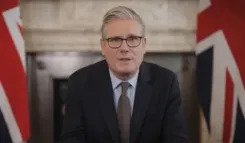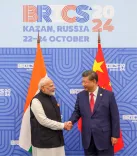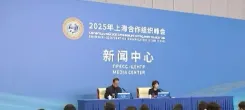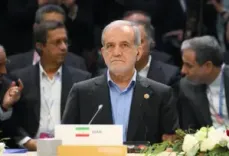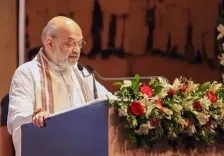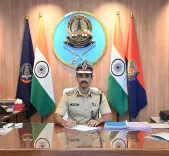What Did PM Modi and Zelenskyy Discuss on Ukraine Peace?
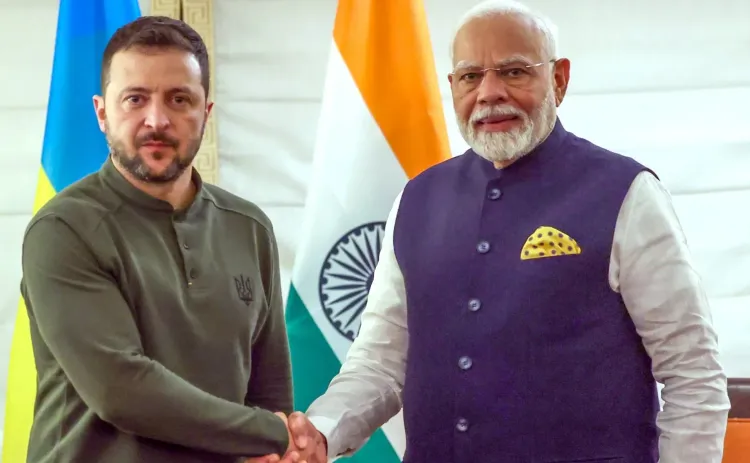
Synopsis
Key Takeaways
- PM Modi and Zelenskyy committed to peace in Ukraine.
- Direct dialogue with Russia is crucial for Ukraine.
- India's role as a mediator is increasingly important.
- Humanitarian concerns remain central to the discussions.
- Future collaborations between India and Ukraine are in the pipeline.
Tianjin (China), Aug 30 (NationPress) In a notable diplomatic milestone prior to the Shanghai Cooperation Organisation (SCO) summit, Prime Minister Narendra Modi and Ukrainian President Volodymyr Zelenskyy engaged in a comprehensive phone conversation on Saturday, reaffirming their mutual dedication to a peaceful resolution of the ongoing conflict in Ukraine.
The dialogue, initiated by President Zelenskyy, occurs just two days before PM Modi’s planned meeting with Russian President Vladimir Putin during the SCO summit in Tianjin, China.
On the social media platform X, PM Modi highlighted the key points of their discussion: "I appreciate President Zelenskyy for his call today. We shared insights on the ongoing conflict, its humanitarian impact, and our efforts to restore peace and stability. India fully supports all initiatives in this regard."
The official statement from the Indian government mirrored this perspective, reaffirming India’s "steadfast and consistent position" favoring a peaceful resolution and expressing readiness to provide "all possible support" for the prompt restoration of peace.
President Zelenskyy also shared details about the call on X, shedding light on Ukraine’s ongoing diplomatic engagements and aspirations for effective mediation:
"I spoke with the Prime Minister of India, Narendra Modi. I briefed him on the negotiations with President Trump in Washington, which involved European leaders. It was a constructive and significant discussion, reflecting a shared vision among partners on achieving genuine peace."
Zelenskyy expressed Ukraine’s readiness to enter direct talks with Russia, while voicing disappointment over Moscow’s lack of a constructive response: "Ukraine confirmed its preparedness for a meeting with the Russian leader. Almost two weeks have passed, and during this time, while Russia should have been preparing for diplomacy, there has been no positive signal—only cynical strikes on civilian sites and the loss of many lives."
The Ukrainian leader extended gratitude to PM Modi for expressing condolences over the recent casualties due to ongoing Russian strikes: "Thank you to the Prime Minister for his words of sympathy to the families and loved ones of the deceased. We coordinated our positions ahead of the Shanghai Cooperation Organization summit."
Zelenskyy stressed that any meaningful dialogue on peace necessitates an immediate and unconditional ceasefire: "The conclusion of this war must commence with an unconditional ceasefire, with the needed silence. This stance is acknowledged and supported universally. It is impossible to have substantive discussions on peace while our cities and communities endure continuous attacks."
He expressed optimism that India would leverage its diplomatic influence to advocate for peace during critical discussions at the SCO summit: "India is prepared to undertake necessary actions and convey the appropriate message to Russia and other leaders during the summit meetings. Thank you."
Apart from the Ukraine conflict, both leaders evaluated the status of the bilateral relationship between India and Ukraine. They discussed opportunities for deeper collaboration in areas of mutual interest, along with preparations for high-level visits and joint commissions.
Zelenskyy concluded his post on X with a hopeful note regarding strengthening bilateral relations: "We also addressed our bilateral ties, preparations for exchange visits, and holding a meeting of the Joint Intergovernmental Commission. There is potential that we can realize. I look forward to meeting with the Prime Minister soon."

